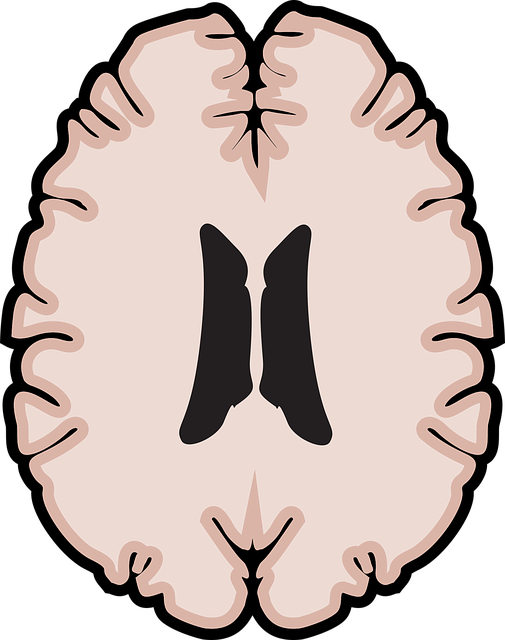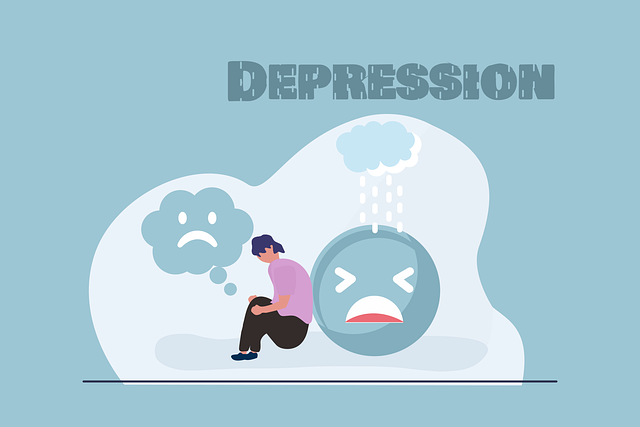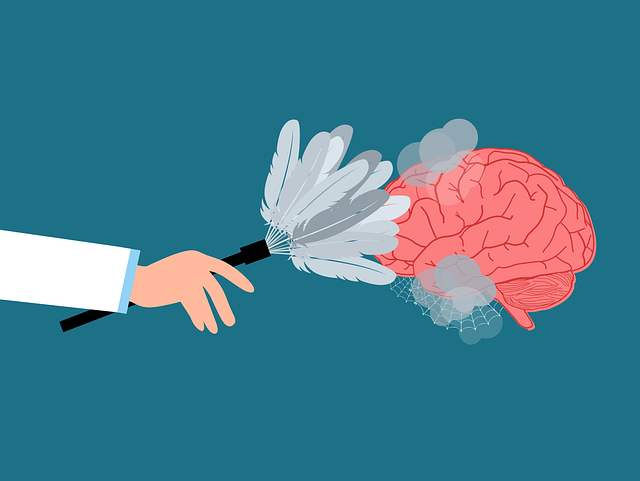Healthcare provider burnout, fueled by high-stress environments and demanding workloads, requires targeted interventions. Longmont Depression Therapy offers Mind Over Matter principles, coping mechanisms, and resilience-building strategies, including conflict resolution training and crisis intervention guidance. Their Community Outreach Program promotes connection, work-life balance, and professional well-being. Organizational support, through systemic changes, integrated mental health services, and policy improvements, is vital for preventing burnout, fostering positive relationships, and sustaining passion among healthcare professionals in Longmont Depression Therapy.
- Recognizing Burnout: Symptoms and Triggers in Healthcare Providers
- Implementing Effective Coping Mechanisms and Self-Care Practices
- Organizational Support and Systemic Changes for Longmont Depression Therapy Integration
Recognizing Burnout: Symptoms and Triggers in Healthcare Providers

Healthcare providers are often on the frontlines, dedicated to caring for others, which can lead to a high-stress environment and potential burnout. Recognizing the signs is crucial; burnout isn’t just about feeling tired or stressed—it’s a complex condition with specific symptoms and triggers. These may include persistent fatigue, increased irritability, cynicism towards patients or colleagues, reduced professional satisfaction, and decreased productivity.
Several factors contribute to healthcare provider burnout, including heavy workloads, long shifts, lack of control over work environments, emotional demands, and limited opportunities for support or recognition. In Longmont, Depression Therapy services can play a vital role in addressing these underlying issues, utilizing Mind Over Matter principles to empower providers with coping mechanisms and resilience-building strategies. Additionally, Community Outreach Program Implementation can foster a sense of connection, promote work-life balance, and enhance overall well-being among healthcare professionals.
Implementing Effective Coping Mechanisms and Self-Care Practices

Healthcare providers, like all individuals, need healthy coping mechanisms to manage stress and prevent burnout. Implementing effective self-care practices is crucial for maintaining well-being in this demanding profession. This can include engaging in regular physical activity, practicing mindfulness or meditation, and setting clear boundaries between work and personal life. Longmont Depression Therapy offers valuable resources for those struggling with mental health issues, providing tools to navigate challenging emotions and enhance resilience.
Additionally, conflict resolution techniques and crisis intervention guidance can be instrumental in managing high-stress situations. Social skills training can also foster better interactions with colleagues and patients, reducing the risk of burnout by promoting positive relationships and effective communication. By adopting these strategies, healthcare providers can create a healthier work environment and sustain their passion for patient care.
Organizational Support and Systemic Changes for Longmont Depression Therapy Integration

In the context of Longmont Depression Therapy, organizational support plays a pivotal role in burnout prevention for healthcare providers. This involves systemic changes within healthcare institutions to integrate mental health services seamlessly. Implementing policies that prioritize emotional regulation and well-being can significantly reduce provider stress. Mentoring programs, regular staff meetings focused on mental health, and access to counseling services are some strategies proven effective. By fostering an environment that encourages open discussions about mental health challenges, organizations can enhance support for healthcare providers.
Integrating Longmont Depression Therapy also requires a holistic look at the healthcare system through a Mental Health Policy Analysis and Advocacy. This involves reviewing existing policies to identify gaps in support and advocating for changes that promote better burnout prevention strategies for healthcare providers. Policies should address workload management, reasonable work hours, and access to resources for emotional regulation. Through systematic improvements, healthcare organizations can create a more sustainable and supportive environment for their staff, ultimately benefiting patient care.
Healthcare providers’ well-being is paramount for delivering quality patient care. By recognizing burnout symptoms and triggers, implementing effective coping mechanisms, and fostering organizational support, healthcare organizations can create a culture that integrates long-term depression therapy solutions like Longmont Depression Therapy. These strategies not only prevent burnout but also enhance the overall satisfaction and resilience of healthcare providers, ultimately benefiting patients and the healthcare system as a whole.








